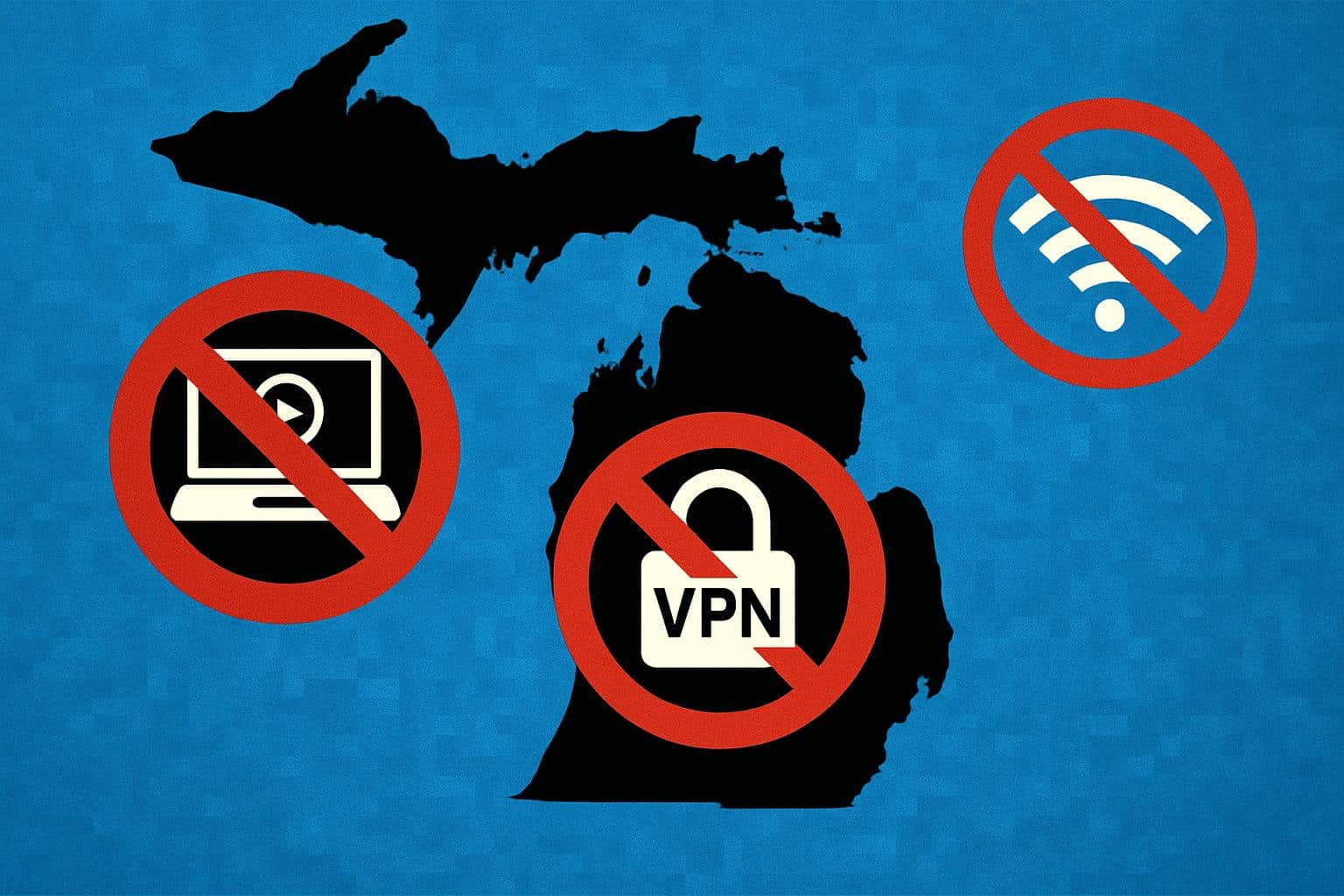Michigan Republicans are working on legislation that would make it impossible for you to access porn online in the state—unless you take an extra step and fill out some paperwork.
The filing process moved forward at a hearing on Tuesday, where legislators discussed what could be the most unworkable internet censorship plan introduced in recent memory.

The proposal, known as the Anticorruption of Public Morals Act, would impose harsh punishments for violators and could potentially add distributors of adult content to sex-offender registries, sparking a high-stakes clash over free speech, privacy, and the limits of state power on the internet.
What the Michigan bill would block and how it works
The bill instructs internet service providers to block access to a long list of sexual content, broadly defined as videos, stories, erotica, and AI-generated material that appears human and not explicit (which would include pornography parodies), animated imagery (like hentai), live streams with nudity (cam shows), and even audio clips. It also makes a special mention of specialty categories like erotic ASMR and sexually explicit AI art, suggesting an intent to police not just traditional adult sites but newer forms of content or tools.
One of the most controversial provisions is a clause aimed at depictions of transgender people and those “representing” a different biological sex. Civil-rights groups and LGBTQ+ advocates say the language is viewpoint discrimination and would probably not survive constitutional scrutiny, because it targets protected speech on the grounds of both identity and message.
The penalties are severe: people and platforms could be hit with heavy fines, and individuals with prison time. The proposed legislation also requires websites and social media providers to update their own terms of use to include compliance in Michigan, an apparent effort to drive platform behavior beyond age-gating into straight-up prohibition for state users.
A VPN ban and the broad cybersecurity side effects
In seeking to prohibit VPNs, encrypted tunnels, proxies, and other “circumvention” devices, the bill goes well beyond adult-content filters. VPNs are standard business infrastructure. Federal cyber agencies including CISA and frameworks from NIST recommend secure remote access, through VPNs or zero-trust alternatives, to defend corporate networks, hospitals, schools, and critical infrastructure.
Preventing or outlawing these tools would hinder normal cybersecurity processes that organizations, including employers and public institutions, use every day. Privacy advocates, including the Electronic Frontier Foundation, have long said encryption and anonymization tools are critical for journalists, dissidents, abuse survivors, and ordinary users hoping to protect sensitive data from theft and surveillance.
There’s also a practical challenge: VPNs aren’t one product but rather a family of protocols that are incorporated into operating systems, enterprise software, and consumer apps. A ban would cause collateral damage in four sectors: telehealth, banking, remote work, and classroom access—all manner of things that have nothing to do with adult content.
The constitutional minefield likely to confront the bill
The plan would face a series of daunting constitutional hurdles. The test of obscenity set up in Miller v. California by the Supreme Court demands a detailed three-part analysis related to local community standards, prurient interest, and a lack of serious value. Broad definitions that can sweep in protected speech may be invalidated as overbroad.

Previous attempts to regulate online indecency have also stalled. In Reno v. ACLU, the Court struck down as unconstitutional several provisions of the federal Communications Decency Act that restricted adult speech in order to protect minors. More recently, courts reviewing state age-verification mandates for adult sites have raised First Amendment and privacy alarms, but some laws have been allowed to take effect during ongoing litigation.
The bill’s ban on depicting transgender women is most at risk. Content-based and viewpoint-based rules would then be subject to strict scrutiny (see Reed v. Town of Gilbert). To target a particular identity, or group message, is a red flag for unconstitutional censorship—an argument likely to be central in lawsuits that groups like the ACLU of Michigan and Lambda Legal say are coming soon.
There’s also a Dormant Commerce Clause issue. Compelling nationwide platforms and interstate networks to retool systems for a single state can be unconstitutional if it impairs interstate commerce, a tension courts identified at the start of the internet age in cases challenging state-by-state speech rules.
Enforcement would be messy, costly, and hard to scale
This is usually done using enforcement points engineered through DNS filtering, IP blocks, or deep packet inspection. None are surgical: DNS filters are easily circumvented, IP blocks can take down innocent services that share infrastructure, and deep packet inspection is expensive, intrusive, and frequently ineffective at breaking encryption. Smaller, regional providers could confront steep compliance costs that are likely to be passed along to consumers.
Adult platforms, meanwhile, have responded to state mandates differently. In multiple states that enforced onerous age-verification restrictions in recent years, the parent company of many major sites has blocked access, citing data-privacy threats and liability. Users typically shift to privacy tools or different platforms, commencing the whack-a-mole cycle that makes blanket bans hard to maintain.
Politics, industry pushback and what comes next
House Bill 156 clearly isn’t what Schriver claims—“straightforward,” a plan “to block pornography at the source”—but it does what he says: It would mandate that internet service providers block sexual content by default but allow access to it for a $20 fee per device. But in a sharply divided legislature—and with immediate constitutional challenges on the horizon—the measure has a long road through committees, floor votes, and the courts.
Tech, media, and civil-liberties groups are already lining up. In recent state court fights over age checks, the Free Speech Coalition, which represents the adult industry, has taken a leading role. The International Association of Privacy Professionals has highlighted the risks of using sensitive IDs to grant access to content. Business coalitions are likely to focus on the implications that the VPN and encryption ban has for cybersecurity and commerce.
The question isn’t whether Michigan can prohibit obscenity (it can), but whether it can criminalize immense tracts of protected speech and commonly used security software to do so. History and case law indicate that approach would warrant prompt injunctions. And while billed as safeguarding minors, the legislation’s architecture has the potential to stifle adult speech, undermine privacy, and curtail lawful activity on the internet in ways that have nothing to do with erotica.

